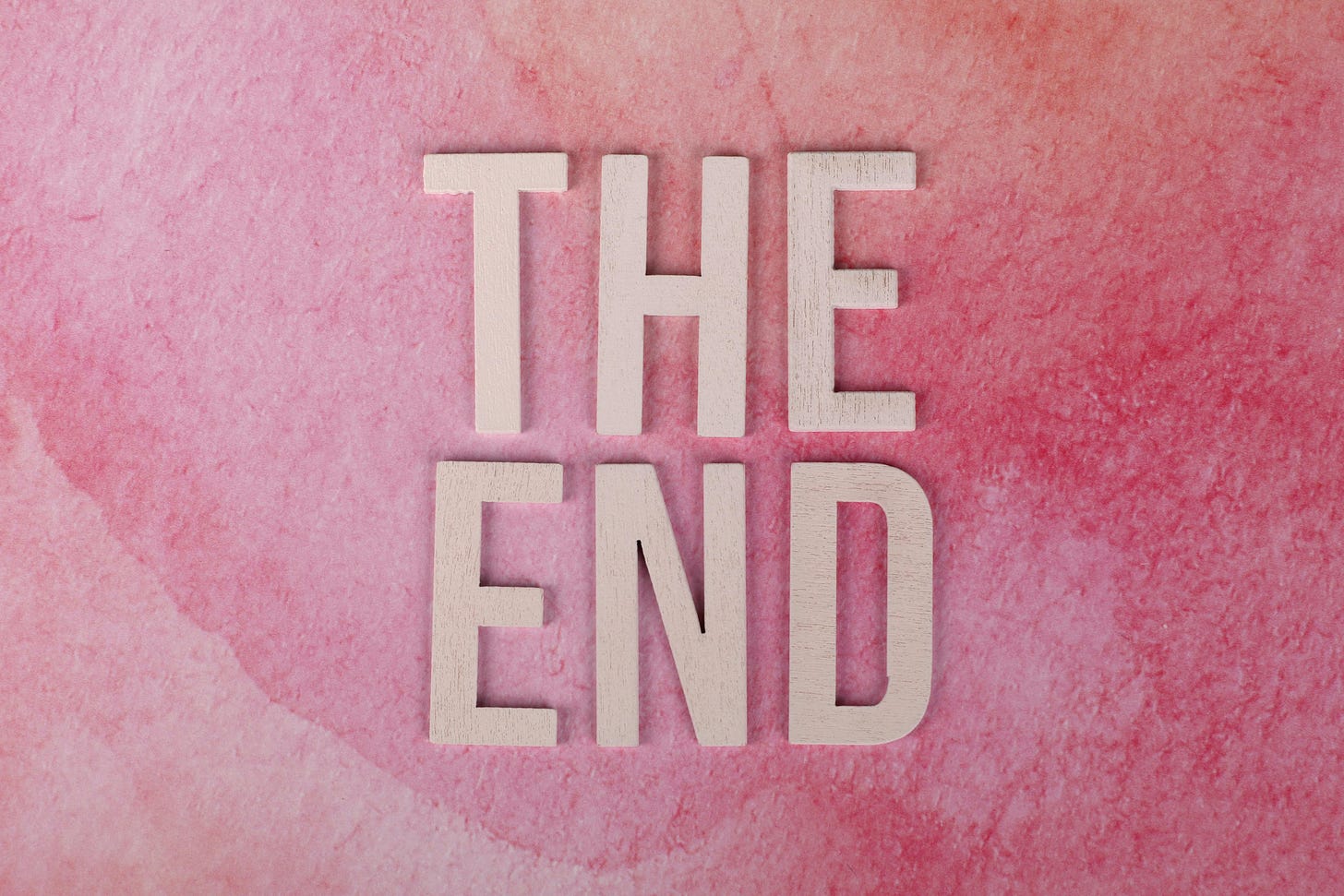I Gave Up On My Novel To Make My Novel Better
Or Why I'm Rewriting, & Why That Almost Didn't Happen
I blame The Little Engine That Could, honestly. There are all kinds of children’s books about determination and positive thinking, but this is the one that really picks up a sledgehammer to make the point - and the point is, of course, that we should carry an entire company on our millennial backs, doing work that is well above our pay grade.
Or, you know, that we should “never give up”. That even when it seems impossible, or hard, or miserable, we should just keep going. And it’s not just that Little Engine who was cheerily drilling this lesson into my tiny childhood head, either. The Very Busy Spider, the Mouse who was given a cookie, so many adorable illustrated characters spent my childhood informing me that no matter what, I just couldn’t give up! Combine that with the pressure to be perfect (we were literally given a board game called ‘Perfection’ that would explode if you didn’t do it right), and it’s no wonder that Millennials are constantly, never endingly, striving.
Except… as an adult, I’ve started to realize that an anthropomorphic train might not be the best source of life advice. (Don’t even get me started on the Giving Tree!) Giving up can be an absolute joy. It can be a necessity. And when it comes to creative projects, it may well be the best choice I have made to become a better writer.
Art & Fear, And The Pottery Analogy
How Quantity Can Be Better Than Quality, As An Aim
One particular story from Art & Fear (David Bayles and Ted Orland) continually pops up in creative circles, for good reason:
The ceramics teacher announced on opening day that he was dividing the class into two groups. All those on the left side of the studio, he said, would be graded solely on the quantity of work they produced, all those on the right solely on its quality.
His procedure was simple: on the final day of class he would bring in his bathroom scales and weigh the work of the “quantity” group: fifty pound of pots rated an “A”, forty pounds a “B”, and so on. Those being graded on “quality”, however, needed to produce only one pot – albeit a perfect one – to get an “A”.
Well, came grading time and a curious fact emerged: the works of highest quality were all produced by the group being graded for quantity. It seems that while the “quantity” group was busily churning out piles of work – and learning from their mistakes – the “quality” group had sat theorizing about perfection, and in the end had little more to show for their efforts than grandiose theories and a pile of dead clay.
When it comes to writing, the takeaway is simple - write books. Not one, perfect, soon-to-be-bestselling-and-award-winning book, that you will battle over for years, but as many books as you can. Write them, edit them, and then put them aside and write another one.
Keep doing that, over and over again, and you will improve.
The Contradiction Of Good Enough
Finding The Sweet Spot Between Giving Up And Calling It Quits
Of course, this doesn’t mean producing work that you genuinely think is bad, just for the sake of producing it. (Although hey, that might work, too - and it’s still better than never writing at all.) But I think there’s a sweet spot where you decide it’s ‘good enough’, and then give up on doing any more.
For me, what this looks like in practice is writing a book, editing it, re-writing it, editing it again, proofreading it, deciding that it’s terrible, re-reading it and deciding that actually, it’s wonderful, vacillating between those two states for a few weeks, and then calling it. Putting it aside. Giving up on making it perfect. Giving up on another round of re-writes, and starting something new.
And the really cool thing is that after I did this with my first book, I wrote another book. And then started a third. And then wrote some erotica, just for fun. And then realized that the opening chapters of the first book are probably dragging it down and causing it to get tossed out of agent inboxes, and decided to go back and re-write it again.
I would likely never have had that realization about the opening, though, if I hadn’t written two other openings after that. I would still be plugging away, twisting individual sentences and slowly falling out of love with the story, until I decided that writing was maybe not for me, and called the whole thing off.
Dear You - Feel Free To Give Up
Consider this an open invitation - you, too, can give up on a book that you are slowly beating to death. Decide that good enough is good enough, put it gently away, and go write something new.
You might find that with some breathing room, and some practice
at writing more, rather than trying to write ‘perfectly’, gives you the space and lessons you need to improve. If nothing else, it might just give you a break from constantly criticising your own work, and let you get back to enjoying the creation process.
So feel free to give up on a project - it might just be the thing that keeps you going. (No matter what the Little Engine That Needed Therapy thinks.)









